IndyCamp bid for Supreme Court eviction appeal denied
- Published
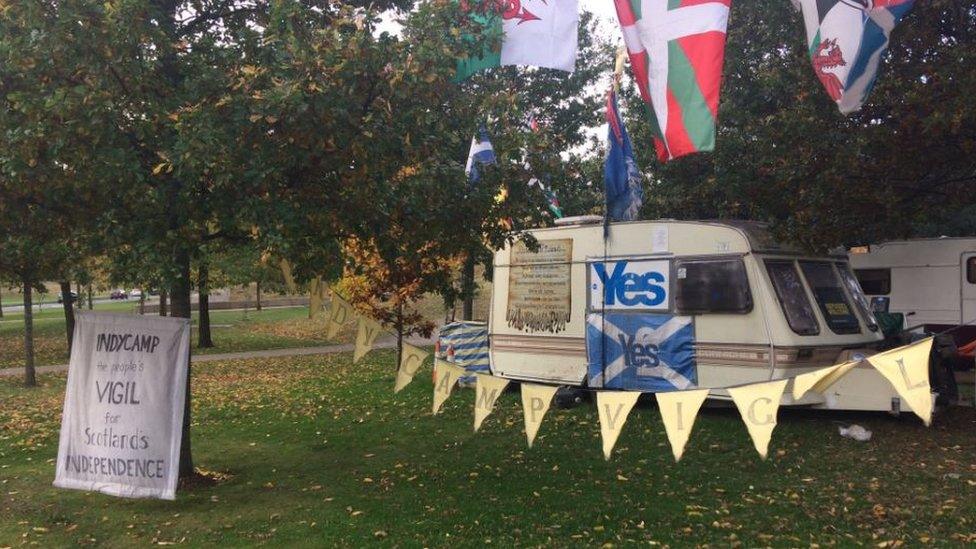
The camp was set up outside the Scottish Parliament in November 2015
Independence campaigners who were evicted from a camp outside Holyrood have been refused permission to appeal to the Supreme Court.
The IndyCamp group spent nearly a year camping on the Scottish Parliament estate, holding an independence vigil.
They were evicted in November 2016 after a lengthy legal battle, but continued their court appeals.
However, judges said referring the case to the UK Supreme Court was not a clear matter of public importance.
The campers now say they will submit a written plea directly to the court in London, and say they are prepared to take the case to the European Court of Human Rights in Strasbourg.
The court had earlier agreed that the campers were liable for the costs of the case, which ran in excess of £105,000. How much they are able to pay will be decided in due course, but the case has otherwise gone as far as it can in Scottish courts.
Fenced off
Fences remain in place around the former campsite on the edge of the parliamentary estate after it was cleared in November.
The camp was set 11 months earlier, with the group hoping to remain in place until Scotland becomes an independent country.
However, the parliament's corporate body (SPCB) initiated legal action, arguing the group was taking up space others could be using for an indefinite period, and calling the political neutrality of the parliamentary estate into question.
After months of legal arguments, Lord Turnbull ruled in favour of eviction at the Court of Session, and a panel of Inner House judges subsequently concluded that he "did not err in his approach".
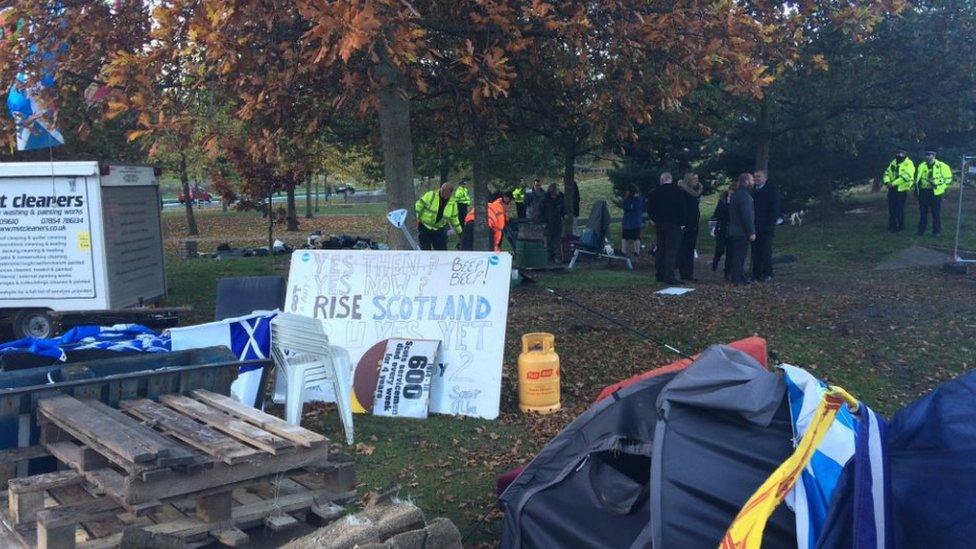
The camp was evicted in November 2016
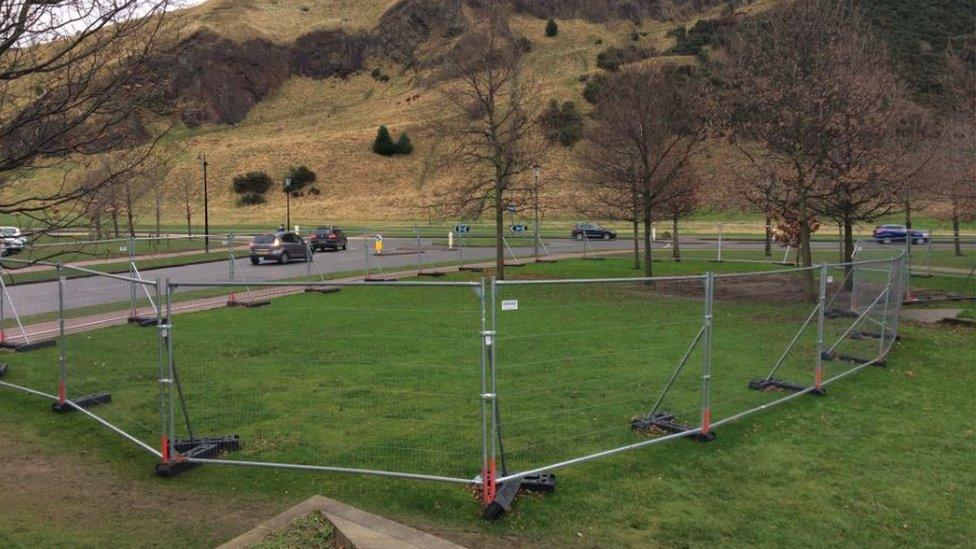
The site of the camp remains fenced off
During the latest hearing, the campers argued they should be allowed to take the matter to the Supreme Court of the UK in London.
Martin Keatings, representing four of the campers, said the group had not been given a proper hearing during the Inner House appeal, adding that a time limit put on his submissions during that hearing left it "like a game show".
He argued the case was clearly a matter of public importance, and said parliament had breached the campers privacy by keeping them under surveillance. He added that the parliament had also broken the terms and conditions of Facebook by using photographs from the camp's social network page in their case.
Mr Keatings closed by saying he would not take a refusal by the court lying down, adding: "We'll take it to Strasbourg, we'll scream, we'll shout."
'Biblical jubilee'
Another camp member, Arthur Gemmill, said: ""What's happening in this court is corruption at the highest level." He also claimed the court was "supporting the UK government".
And Richard McFarlane agreed that the "judges work for the government", claiming the court was illegitimate as the Queen was not crowned on the true stone of destiny.
He argued Scotland should only seek independence through a "biblical jubilee", led by the reborn Christ, rather than as part of the EU, which he called "fascist" and a "Babylonian dictatorship of evil".
Referring to his group as "Jedi" and warning the judges to heed "the return of the Jedi", Mr McFarlane added: "How could you possibly be opposed to Christ on his second coming, unless you are criminally insane and working for Satan?"
Having heard these arguments, the judges - Lady Dorrian, Lord Menzies and Lord Glennie - briefly conferred, before concluding that continuing the case in the Supreme Court was not a matter of public importance.
Lady Dorrian, who earlier refused a motion for her to be excused from the case amid accusations of a conflict of interest, also said the judges did not accept the characterisation of the court put forward by the campers.
A spokeswoman for the Scottish Parliament said: "We welcome the Court of Session's decision today that the protesters have no grounds for a further appeal to the Supreme Court.
"We hope the protesters will accept the court's ruling so we can bring matters to a close."
- Published4 November 2016
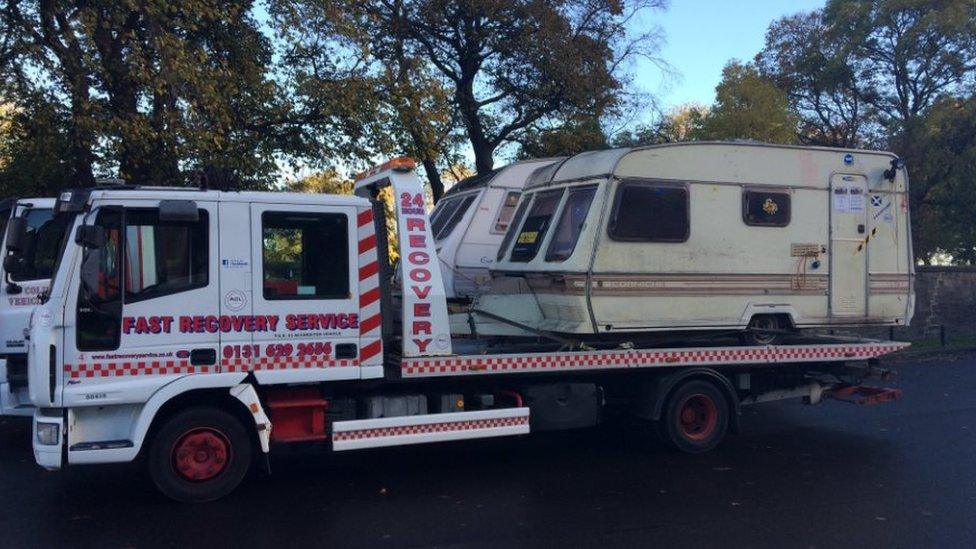
- Published3 November 2016
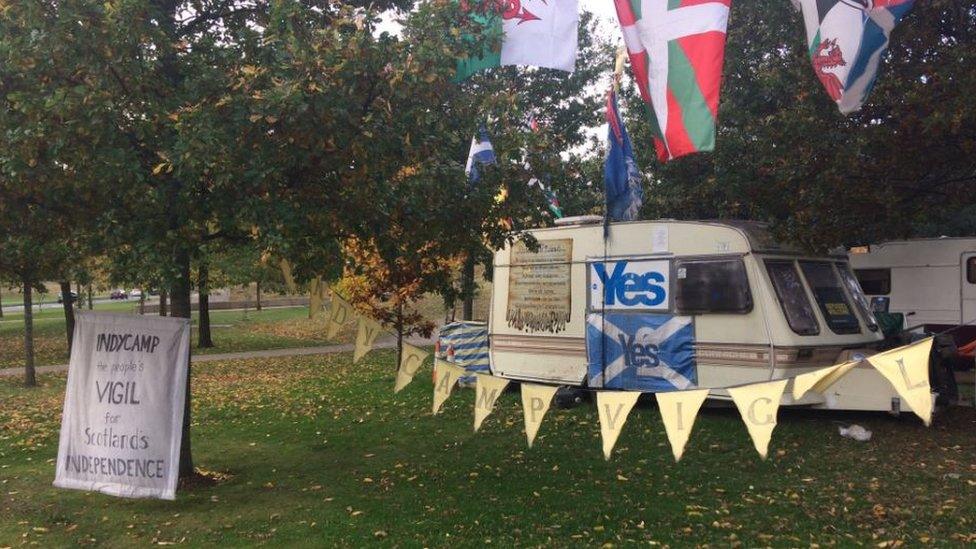
- Published28 October 2016
